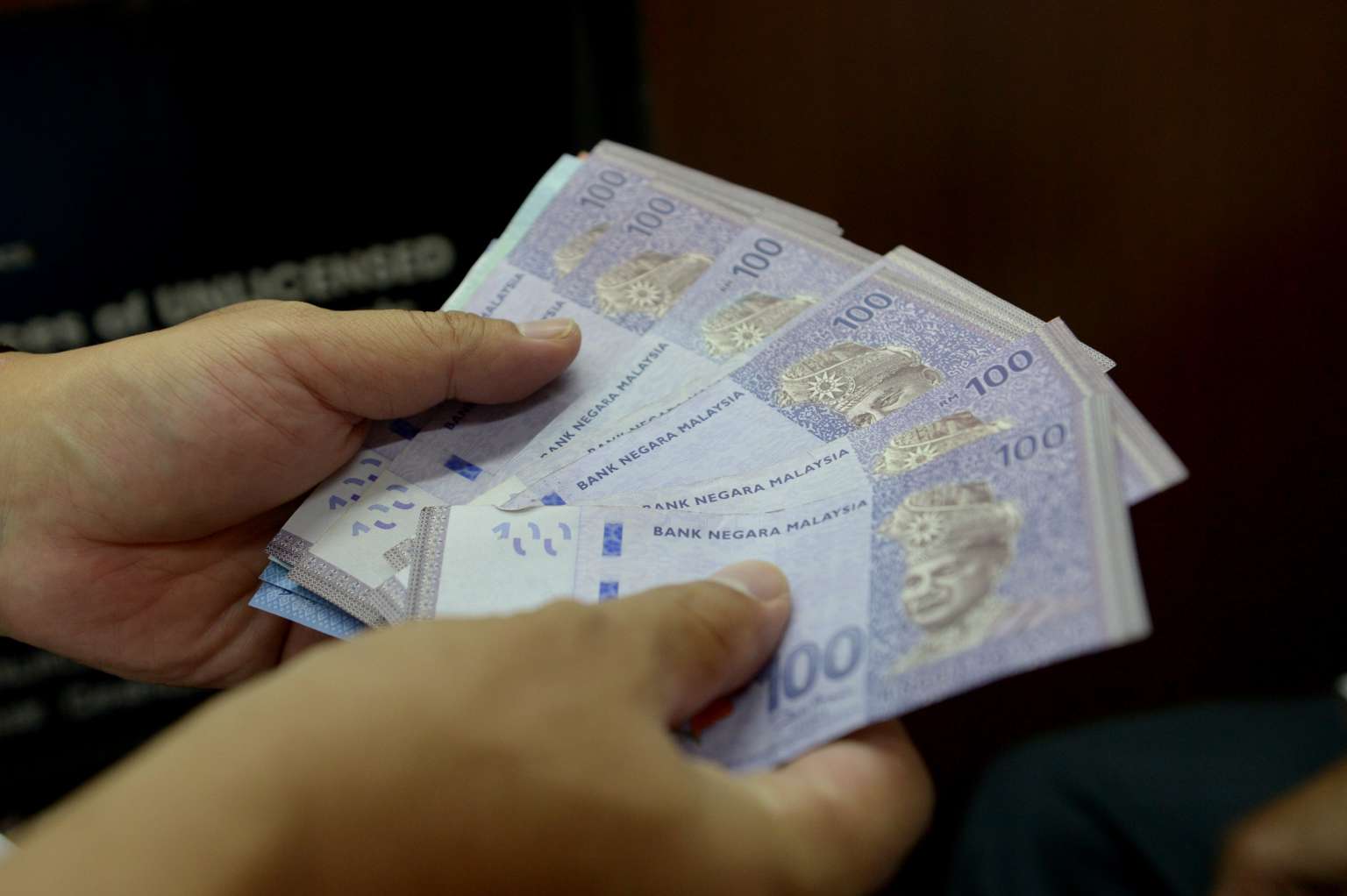Surge in Singapore dollar a boon for Johor
Sign up now: Get insights on the biggest stories in Malaysia

The Malaysian unit fell about 1.4 per cent to settle at 3.0166 to one Singapore dollar.
ST PHOTO: JAMIE KOH
JOHOR BARU - The recent surge in the value of the Singapore dollar against the ringgit has created opportunities for Malaysian businesses, especially those in Johor Baru, it was reported on Tuesday.
Currently, the Singapore factor is worth at least RM50 billion (S$16.6 billion) a year to the Johor economy, state executive councillor for tourism and domestic trade, Datuk Tee Siew Keong, told Malay Mail Online.
"An average of 16 million tourists a year from Singapore visit Malaysia and a vast majority enter the country via Johor Baru. It is their first stop and assuming they spend a night or two here before moving to other places, the money they spend is substantial," Datuk Tee was quoted as saying.
"And then, we have Malaysians living in Johor Baru who travel daily to Singapore for work. The government estimates there are 400,000 of them. Assuming they earn S$2,000 each on average a month, the (total amount) they bring home annually is staggering.
"I have done some calculation and I think RM50 billion a year to the Johor economy, from the tourists and Malaysians working in Singapore, is a fair amount (to quote)," he added.
The news portal also quoted him as saying now is the right time for businessmen in Johor to consider exploring the Singapore market.
"Agricultural products like fruits and vegetables (for example)... there is huge potential there, and Johor being an agricultural state, we can grow enough for the export market."
Another attractive option is the furniture business, according to the report.
"Labour costs are cheaper here. Wood products are cheaper here and therefore, the cost of furniture like cabinets, tables and chairs are definitely much lower compared to those made in Singapore," he said.
The Johor Premium Outlet (JPO), a duty-free shopping complex with an estimated 130 brand name outlets, is also bracing for an influx of Singapore shoppers, Malay Mail Online reported.
"We have always been popular with Singaporeans, but lately, there has been an increase in their numbers here. The reasons are obvious. It's about the strength of their dollar.
"Singaporeans are mature shoppers. They know what they want and generally, handbags and shoes are their priority, and at JPO, there is always value for money," said JPO chief operating officer Jean Marie Harry.
But the obvious benefit the strong Singapore dollar has on the Johor economy is hotel accommodation, especially on weekends or eve of public holidays.
"Weekends bring good business for us. We are always about full-house on weekends and 60 per cent of our guests are Singaporeans," said Mr Mahadi Mathana, manager of four-star KSL Hotel here.
"At an average of RM250-RM280 per room per night, it's a steal for Singaporeans to stay a night or two, do some shopping and have a nice meal. In fact, most of the hotels in the city are always full on weekends and Singaporeans are the ones filling up the rooms," Mahadi said.
Customers flocked to the moneychangers in Singapore on Monday to snap up ringgit after the Malaysian currency crossed the psychological threshold of three to the Singdollar.
The Malaysian unit fell about 1.4 per cent to settle at 3.0166 to one Singdollar, leaving it down 19 per cent from a year ago.
While Singaporeans may enjoy a psychological lift when they cross the border to shop this weekend, the tourism story looks less cheerful the other way around.
"Malaysia and Indonesia, whose currencies have weakened against the Singdollar, account for more than a third of tourist arrivals into Singapore. Our hospitality sector will be hurt if their currencies bring them less bang for their buck," CIMB economist Song Seng Wun told The Straits Times.
But analysts believe the ringgit will not stay at this level for long, according to the newspaper.
"Markets have been in overshooting mode because of the convergence of negative news - falling oil prices, political turmoil, China," said UBS Wealth Management foreign exchange strategist Tan Teck Leng.
"In the long term, the ringgit is really undervalued and such a level should not persist on a 12-month basis."


